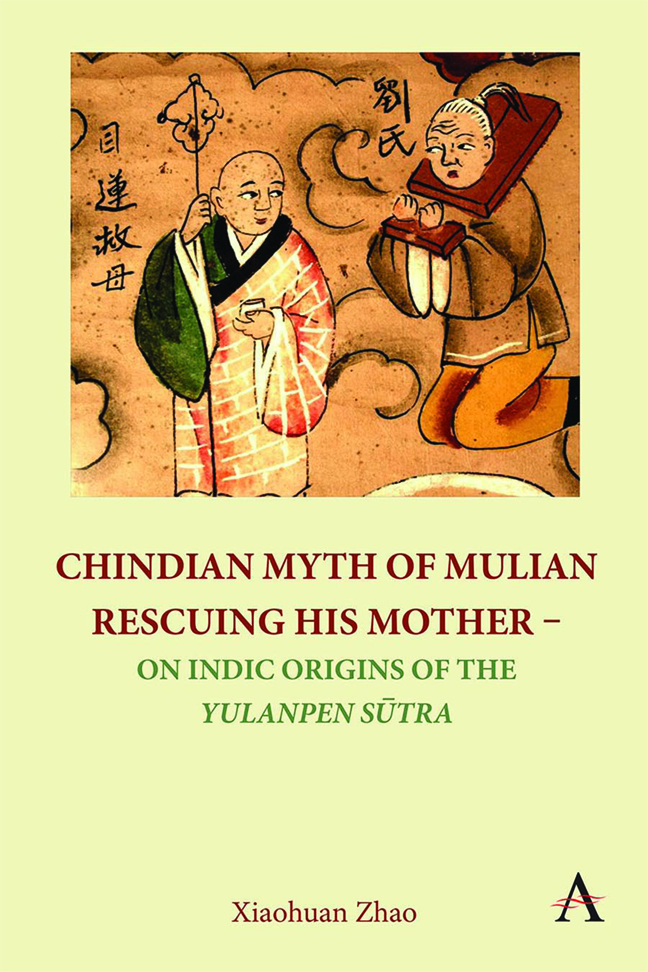3 - Yulanpen Sūtra in Chinese Buddhist Catalogues
Published online by Cambridge University Press: 02 March 2024
Summary
Tales about saving ghosts from suffering in Hell and about gaining rebirth in a better realm for oneself or for one's deceased ancestors by making merit through charitable acts are numerous in Buddhist scriptures, but none of them features Maudgalyāyana as the central character except the Yulanpen Sūtra.
Dharmarakṣ́a and Indian Buddhist Text Transmission and Translation in China
Traditionally, the Indo-Scythian Dharmarakṣ́a (aka Zhu Fahu, d. 308) is credited with the translation of the sūtra, although there is no such Buddhist scripture extant in any known Indic sources. Respectfully dubbed ‘Bodhisattva Śramanna’ (Pusa shamen) and ‘Dunhuang Bodhisattva’ (Dunhuang pusa), Dharmarakṣ́a was born and spent his childhood in Dunhuang, a major stop on the ancient Silk Road in northwestern China; he renounced the world and became a monk (chujia) at the age of eight and studied under Śrı̄mi (Shilimi), a Kuchean śramana alternatively known as Gaozuo; during the reign period of Emperor Wu of Jin ( Jin Wudi, r. 266–290), Dharmarakṣ́a travelled extensively with his Kuchean teacher across the Western Regions, studying local languages while searching for scriptures, and returned with a great number of Kharośṭhı texts (huben); and he lived most of his productive life in Luoyang and Chang’an (modern Xi’an), translating scriptures with the assistance of a team of Central Asian and Chinese bilingual Śramanas and upāsakas, as noted by Monk Sengyou (445–518) in the ‘Biography of Zhu Fahu’ and elsewhere in the Compilation of Notices on the Translation of the Tripițaka (Chu sanzang jiji, T55n2145_013.0097c20; hereafter cited as Sanzang jiji; see also Mei 1996 and particularly Boucher 2006).
Dharmarakṣ́a was the most prolific Buddhist translator of the Western Jin (266–316). A total of 154 titles in 309 scrolls ( juan) are listed in the Compilation of Notices on the Translation of the Tripițaka (Sanzang jiji, T55n2145_002.0007b08– 0009b28) with Dharmarakṣ́a named as their translator. Of the 154 titles, sixty-four in a total of 116 scrolls are lost and known only by title to the compiler. Included now in the TaishoÌ Tripitaț ka with Dharmarakṣa given as their translator are ninety-four titles, seventy-six of which are found listed in the Compilation of Notices on the Translation of the Tripițaka. As for the remaining eighteen titles, they are all credited to Dharmarakṣ́a as the translator in the TaishoÌ Tripitaț ka probably under the influence of Chinese catalogues of Buddhist literature.
- Type
- Chapter
- Information
- Chindian Myth of Mulian Rescuing His MotherOn Indic Origins of the Yulanpen Sūtra, pp. 23 - 36Publisher: Anthem PressPrint publication year: 2023

